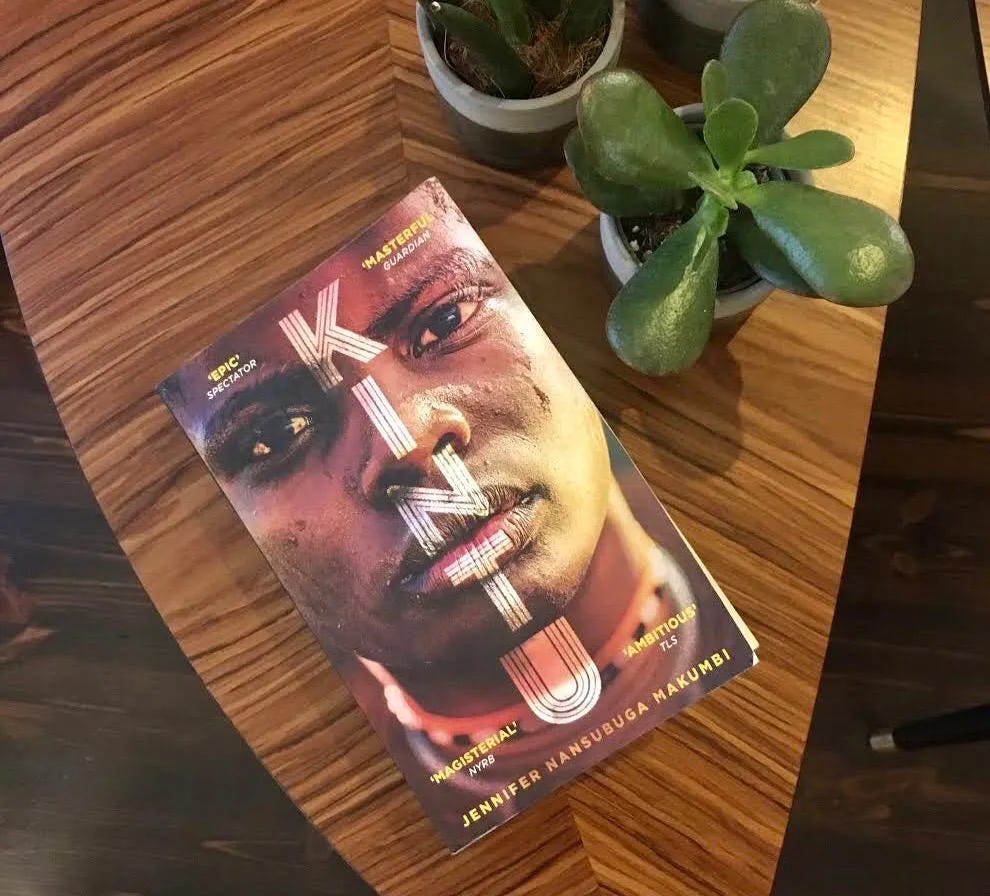
This book opens in 18th-century Uganda, in the Buganda Kingdom. The king has been murdered by his brother, and a provincial governor (Kintu, pronounced “Chintu”) has to take a delegation on a hard, dangerous journey to pay their obeisance to the untrustworthy new king, who might run the kingdom into the ground, and in the meantime is putting heads on posts. On the journey, Kintu makes a mistake that draws down a curse that will follow his family for generations.
When I hear something described as a multi-generational family saga, I run away. But this book combines the political intrigue of a good feudal historical drama with crystalline studies of a few well chosen characters among Kintu’s many modern-day descendants, who must end the curse by making personal and collective decisions that, of course, are uniquely difficult for them because of their specific personalities and traumas.
This is an accomplished book and a satisfying read. It’s the kind of book that should have been on the New York Times list of the 100 best books of the century so far but was not on it. Everyone complains when things they like get overlooked on best-of lists. But as Ainehi Edoro-Glines pointed out in this article at LitHub, 61 of the books on that list were American, and only two titles were from Africa. While this book was a hit in Uganda1, it seems unlikely that the authors and publishing industry people who were polled by the Times had read many 21st century African books or were considering them as they were making their selections. So it’s not like they weighed this book with the other choices and left it out, it’s that it was never really a contender. But if you read it, I think you’ll feel that the time spent with it was time well spent.
*
Unrelatedly, check out this list of 76 Notable Debuts by Trans, Nonbinary, and Gender Non-Conforming Authors in 2024. The journalist who compiled it, Jen St. Jude, wonders at the top of the article whether it’s wise or safe to make a list like this right now. Are they just making a target list for book ban campaigns? They said they reached out to every author to make sure they were comfortable being included.
I doubt Jen St. Jude can have read everything on this list, so I wouldn’t take it as a list of recommendations, just something to browse and see what piques your interest. I picked a few from the fiction section that sounded appealing and tried reserving them at the library. I’ve now got holds on Hombrecito, Smothermoss, and Still Life. This is the same approach I took with Edoro-Glines’s article above—she throws out the names of many 21st century African authors—which led to my reading a handful of the books by African writers she’d named and having the particular pleasure of reading Kintu.
I had a copy of this book from the library, then bought my own copy in a different edition. I remember the introduction to the other edition saying that this book was a sensation among Ugandan readers, but I can’t cite it because I returned it to the library.


